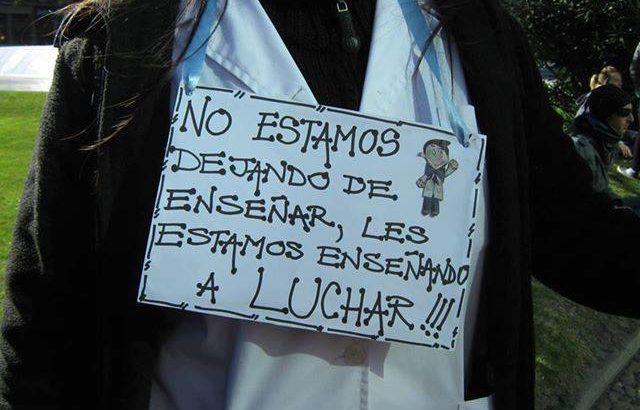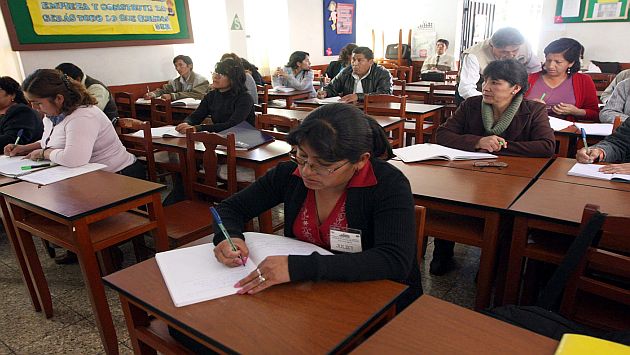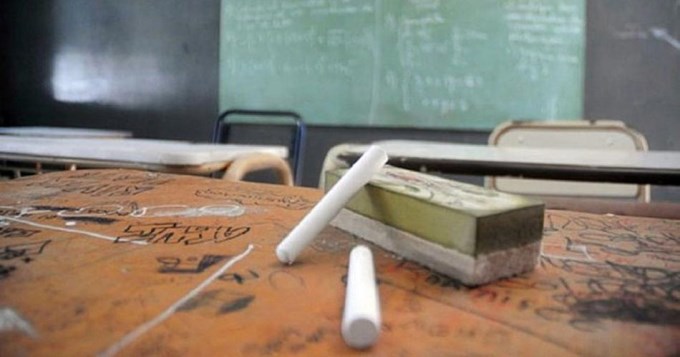Unrealistic regulations and corruption emerging from the decentralisation of hiring and administration of civil servants in the education sector have led to uneven distribution of teachers nationwide, a senior education official says.
Trần Kim Tự, Director of the Department of Teachers and Education Administrators, made this statement at a conference organised last week by the Ministry of Education and Training (MoET) to review activities and achievements of the first school term.
Discussions focused largely on the fact that while many localities enjoy a high concentration of teachers and educators, even to the point of ‘oversaturation,’ others were seriously understaffed.
A report tabled by the department said provinces and cities had performed several functions quite satisfactorily, including planning, recruiting, arranging, appointing and dismissing staff.
Many localities had implemented proactive, flexible initiatives to hire teachers, staff and education managers to make best use of payroll policies, ensuring a decent living standard for teachers, it said.
The report also identified several problems. It said a number of civil servants’ entrance examinations had failed to observe existing regulations, leaving the process exposed to bribery and corruption.
Issues such as “serial” termination of contracts of hundreds of teachers, teachers/instructors contracted for a year not being paid, as well as scandal-ridden appointments and dismissal of teachers in provinces like Thanh Hoá, Nghệ An and Cà Mau were highlighted in the report.
These issues had been a source of public criticism and disgruntlement among teachers, the report said.
It also said 26,750 teachers in public schools were ‘redundant’ (3,194 in primary schools; 21,005 and 2,551 in secondary and high schools, respectively) in several localities, while 45,000 teachers were still needed (32,600 for kindergartens; 7,824 for primary schools; 2,800 and 1,800 for secondary and high schools) in other areas.
Thái Bình and Quảng Nam Provinces had more than 1,000 ‘redundant’ teachers, while Nghệ An and Thanh Hoá had a ’surplus’ of 1,742 and 2,188 secondary school teachers. Meanwhile, HCM City and the northern province of Sơn La were struggling with a deficiency of thousands of kindergarten teachers. In Bắc Giang and Nghệ An provinces, the shortage was even higher at 2,000 and 3,300 teachers, respectively. Primary schools throughout the nation are struggling to find teachers. For instance, Hà Nội needs nearly 3,000, while Sơn La and Gia Lai provinces could use another 1,100 teachers each.
“The mobilisation from or transfer of teachers between schools remains fraught with difficulties, due to the mismatch between the required posts and teachers’ qualifications, or wide socio-economic development gaps between one locality and the other,” Tự said.
“Haphazard signing of contracts with teachers by local governments, going against regulations, have sparked public protests. Relegating redundant teachers from secondary and high schools to kindergarten and primary schools without giving them any professional training has proved problematic, most notably in Thanh Hoá Province,” he said.
Tự also noted that at present, foreign language was not a mandatory subject in primary schools, so foreign language teachers (mostly for English) were not on the state payroll, but on contracts.
In addition, he said, documents that set out regulations on training for teachers and managers of educational institutions were not satisfactorily comprehensive. Training programmes and materials, delivery methods, organisation of activities, or even procedures for reviewing and assessing the training that teachers and managers receive, were still outdated, not matching actual demand.
Arbitrary imposition
Thanh Hoá is one of the provinces worst-hit by the shortage of teachers, said Phạm Thị Hằng, Director of the provincial Department of Education and Training. She said decisions on policies or transfer of teachers must be done based on localities’ inputs, not arbitrarily imposed from the top.
She said that in the 2011-2016 period, the province’s payroll quota “hit a freeze point” and the provincial department of home affairs didn’t adjust this quota; so, in order to meet with changing number of students, the education department ‘aggressively’ pushed for transferring teachers from where there is a surplus to where there is a shortage.
Hằng said that at present, the education sector did not have enough say in hiring and using educators. «The Ministry of Home Affairs manages the recruitment and the Ministry of Finance controls the funds and monetary allocation while the education sector has to bear the ultimate responsibility for the quality of educators.» This has posed many difficulties for the provincial education department, she said.
Can’t act in haste
Minister of MoET, Phùng Xuân Nhạ, stressed that “teachers’ quality decides the quality of education.”
Since the State Budget is limited, part of the investment would have to be sourced from localities themselves as well from the private sector, he said.
He said while plans were made after due consideration of all aspects, factors like unexpected fluctuations in the population, migration, the emergence of industrial parks and export-processing zones, among others, led to unforeseen changes in number of students in all grades, and the ministry was still trying to resolve this issue in the long-term with better forecasts and master plans.
The Minister also cautioned the provinces over the practice of transferring teachers from grades where there is a surplus to where there is a shortage, for example, from high school down to kindergarten schools. It might be an effective temporary solution, but quality must come first, and transferred teachers must be trained and equipped with proper skills, he said.
“Yes, the shortage is serious, but it’s not something that has come up only recently. Actions taken in haste, without careful consideration and planning, will result in potentially damaging consequences down the road,” he said.
In order to ensure fairness in transferring redundant teachers, Hằng said that localities in Thanh Hoá Province had been instructed to build a transparent set of standards and criteria against which teachers would be assessed by a qualified council.
Regarding this year’s agenda, the education minister said that the ministry would place a stronger focus on training managerial-level officers – first and foremost, directors and deputy directors of provincial and municipal departments of education and training.
He believed that with knowledge, skills, and experience in education management gained through proper training, managers would become more efficient and effective.
Minister Nhạ pledged to conceive and organise a unified professional training programme that would be implemented nationwide for transferred teachers, instead of having to build one each year
Fuente: http://vietnamnews.vn/society/education/350116/too-many-too-little-a-teaching-conundrum.html#iSi0qXdW3xZWsc8l.97















 Users Today : 34
Users Today : 34 Total Users : 35460417
Total Users : 35460417 Views Today : 67
Views Today : 67 Total views : 3419230
Total views : 3419230